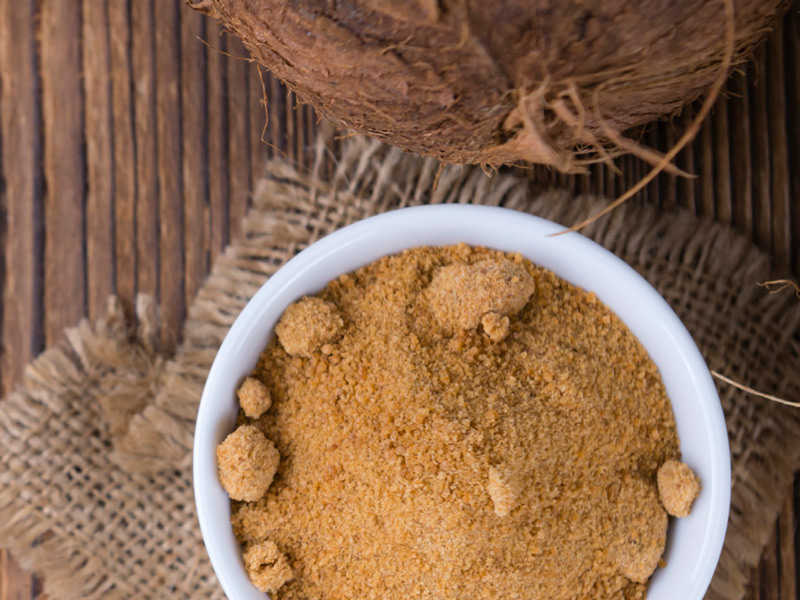Sugar provides the oh-so-good flavor in everything from salad dressing to cookies, honeyed hams to sodas. But sweet as it may be, sugar and sugar substitutes are full of empty calories and have absolutely no nutritional benefits. While it provides quick energy, it has no vitamins or minerals, no phytonutrients or protein, nothing to help the human body stay healthy. Eating sugar does little more than add to your waistline and mess with your blood glucose levels.
Because sugar is nutritionally unnecessary and possibly harmful to your health, the World Health Organization recommends that added sugars make up no more than 10 percent of your calories every day. If you eat a 2,000 calorie per day diet, you should only eat 50 grams of added sugar each day (12 teaspoons). Eating only half of that would be even better for your health, but is difficult for American adults to achieve.
To reduce how much sugar you eat, you may be tempted to turn to artificial sweeteners or natural sugar substitutes like agave nectar or coconut sugar. Unfortunately, these sweeteners may not be a healthy choice either.
Caroline Fornshell, a registered dietitian-nutritionist and cofounder of LWell in Williamsburg, Va., says that while artificial sweeteners reduce calories, they have no other benefits. Some artificial sweeteners can even have negative effects, including:
- Diarrhea
- Damage to the intestinal lining
- Increased inflammation
Other sweeteners fail to contribute to weight loss, even though they have fewer calories, and can still cause health issues in people with pre-diabetes or type 2 diabetes.

Natural sugar alternatives also have health trade-offs. For instance, agave nectar is sweeter than sugar so you can use less of it and take in fewer grams of sugar overall. However, agave nectar is high in fructose, a type of sugar that raises your levels of LDL (bad) cholesterol. If you have high cholesterol already, sticking with a small amount of cane sugar may be the better choice.
If you still need a little added sweetness, Fornshell recommends a small amount of raw, local honey. Raw honey is lower on the glycemic index, meaning it causes a slower increase in your blood sugar than cane sugar. However, your blood sugar is still going to go up.
Natural sugar substitutes and artificial sweeteners also don’t address the real issue behind eating so much sugar, which is your brain’s dependence on sugary foods.
“As you try to sweeten your food, your palate is left under-stimulated,” Fornshell says. “You are simply creating a response to the effects of sweet, whether it is sugar or artificial sweetener. This response increases cravings.”
To reduce sugar intake, Fornshell suggests slowly retraining your palate to enjoy food that is less sweet, but rich in other flavors.
“You want to engage your brain in a variety of sensations and flavors,” Fornshell says. “Take it slow. Give yourself two weeks to get used to any sweetness level so you can slowly but surely reduce how much sugar you eat.”
Fornshell recommends getting back to basics on flavor and finding ways to break through your brain’s need for sugar, salt and fat. She recommends buying flavorful fresh herbs to replace the taste of sugar. By finding other flavors you enjoy besides sweet, you can give up sugar, artificial sweeteners and natural sugar alternatives without feeling like you are giving up all your favorite foods.


